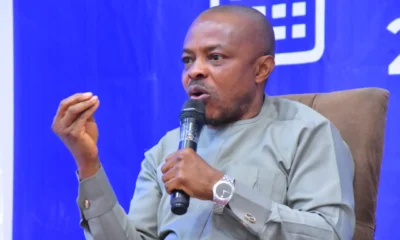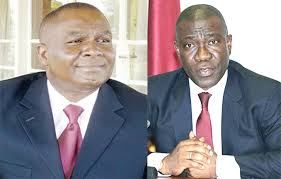Breaking News
ASUU Suspends Two-Week Warning Strike, Gives FG One-Month Ultimatum

The Academic Staff Union of Universities (ASUU) has suspended its two-week warning strike, granting the Federal Government a one-month window to conclude the renegotiation of the 2009 FGN/ASUU Agreement and address other unresolved issues affecting Nigeria’s public university system.
The union’s president, Prof. Chris Piwuna, announced the decision at a press briefing on Wednesday in Abuja, explaining that the move followed “fruitful engagements” with government representatives and decisive interventions by the National Assembly.
Piwuna recalled that ASUU embarked on the warning strike on October 13, 2025, over what it described as the Federal Government’s failure to respond to repeated appeals to address the lingering renegotiation and welfare concerns of university lecturers.
“When we gathered here about 10 days ago to painfully declare a warning strike, it was a decision that left us with no other choice,” Piwuna said.
“The government had ignored our repeated overtures to address issues critical to the survival of Nigeria’s public universities.”
He noted that the union’s patience had been stretched by years of unfulfilled promises on funding, improved working conditions, and the implementation of key aspects of the 2009 agreement.
According to Piwuna, following the declaration of the strike, the Federal Government reopened negotiations through a team led by Alhaji Yayale Ahmed, which met with ASUU representatives on October 16 and 18 to review the government’s response to the draft renegotiated agreement.
Although not all issues were resolved, the ASUU president said the meetings marked “a notable improvement” compared to the situation before the strike.
“We acknowledge that while the discussions did not resolve all concerns, the progress made so far is far better than what obtained before the industrial action,” he said.
Piwuna commended the Senate Committees on Tertiary Education, TETFund, and Labour, as well as the Deputy Senate President, Senator Barau Jibrin, for facilitating dialogue between the union and the government.
“Their mediation rekindled hope for a lasting resolution,” he said. “It showed that when there is genuine will, progress can be achieved.”
The intervention, he said, helped both parties to find common ground on key issues, paving the way for a review of timelines and commitments.
Following an emergency meeting of ASUU’s National Executive Council (NEC) held from October 21 to 22, the union concluded that the warning strike had achieved its short-term goal, compelling government to return to the negotiation table.
“While noting that more work remains to be done, NEC resolved to suspend the warning strike to allow for a conducive atmosphere for further engagement,” Piwuna said.
He added that ASUU’s decision was a demonstration of goodwill, aimed at encouraging the Federal Government to act in good faith and conclude the renegotiation process within the one-month grace period.
The lecturers’ union is seeking the full implementation of the 2009 FGN/ASUU Agreement, improved funding for public universities, release of earned academic allowances, and an overhaul of the Integrated Personnel and Payroll Information System (IPPIS), which it argues undermines university autonomy.
ASUU also wants the government to address shortfalls in promotion arrears, withheld salaries, and other welfare concerns affecting its members nationwide.
Observers say the suspension of the strike offers a temporary reprieve for students and parents, but tensions could resurface if government fails to meet the union’s new deadline.
























